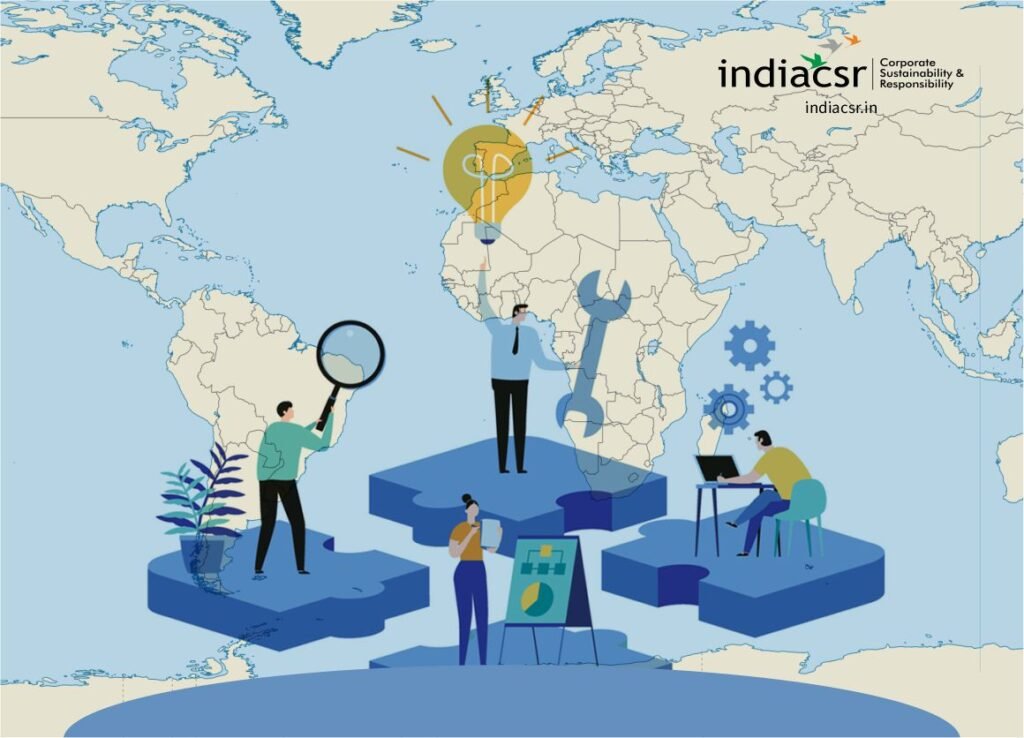How skill development or skilling can empower the young population and address the challenges of education, unemployment, exploitation, depression, and social problems.

India has a huge demographic dividend, with more than 600 million people younger than 25 years of age and about 70% of the total population less than 40 years of age. This offers a unique opportunity for India to become the skill capital of the world and meet the demand for skilled manpower in various sectors and countries. One of the possible solutions to address these issues is to provide skill development opportunities to the youth in India.
Skill development is the process of enhancing the abilities and competencies of individuals to perform specific tasks or roles effectively and efficiently. Skill development can empower the youth in India by – Improving their education, Increasing their employability, Protecting them from exploitation, Reducing their depression and Solving their social problems.
However, this opportunity also comes with many challenges, as the youth in India face several issues that affect their well-being, productivity, and potential. Some of the major issues faced by the youth in India are:

1. Education
Although education is a success story in India, there are significant issues affecting young people around education. These include poor quality of education, lack of access to higher education, skill mismatch, low employability, and high dropout rates.
Solution
Skill development can complement formal education by providing practical knowledge, hands-on training, industry exposure, and career guidance. It can also help reduce the skill gap between education and employment by aligning the curriculum with the market demand. Skill development can also motivate the youth to pursue higher education or lifelong learning by enhancing their interest and confidence.

2. Unemployment
More than 30% of Indian youth are unemployed and also not involved in any education or training2. The unemployment rate among the educated youth is around 25%, which is significantly higher than that in most developed and developing countries3. The lack of job opportunities, skills, and guidance leads to frustration and disillusionment among the youth.
Solution
Skill development can increase the employability of the youth by providing them with relevant skills that are required by employers in various sectors and countries. It can also help them acquire soft skills such as communication, teamwork, problem-solving, and leadership which are essential for any job. Skill development can also help them create their own employment opportunities by fostering entrepreneurship and innovation.

3. Exploitation
Many young people in India are vulnerable to exploitation under the name of experience, internship, or apprenticeship. They are often paid low wages, work long hours, face harassment, and have no social security or legal protection4. Some of them also fall prey to human trafficking, child labour, and forced marriage.
Solution
Skill development can protect the youth from exploitation by providing them with certification, accreditation, recognition, and standardization of their skills. It can also help them negotiate better wages, working conditions, and benefits with their employers. Skill development can also help them access social security schemes such as health insurance, pension, and provident fund.

4. Depression
Depression is a very common yet overlooked disease among youth. It affects their mental health, physical health, academic performance, and social relationships. According to a WHO report, India has the highest number of depressed individuals in the world, with more than 56 million people suffering from depression. The causes of depression among youth include stress, peer pressure, family problems, academic pressure, social media addiction, and lack of support.
Solution
Skill development can protect the youth from exploitation by providing them with certification, accreditation, recognition, and standardization of their skills. It can also help them negotiate better wages, working conditions, and benefits with their employers. Skill development can also help them access social security schemes such as health insurance, pension, and provident fund.

5. Social problems
The youth in India also face various social problems such as substance abuse, violence, crime, radicalization, communalism, and gender discrimination. These problems affect their moral values, civic sense, social responsibility, and national integration. They also hamper their personal growth and development.
Solution
Skill development can solve social problems among youth by promoting positive values, attitudes, and behaviors among them. It can also help them develop social skills such as empathy, tolerance, and respect for diversity which are essential for peaceful coexistence. Skill development can also help them contribute to social causes such as the environment, health, and education by providing them with civic skills, social responsibility, and national integration.

The skilling ecosystem is unlocking the potential of youth
These are some of the examples of how skilling ecosystem in India is unlocking the potential of youth and addressing their issues. However, there are still many challenges and gaps that need to be overcome for achieving the desired outcomes. Some of these are:
Quality: The quality of skill training programmes varies widely across providers, sectors, and regions. There is a need to ensure uniformity, standardization, and accreditation of skill training programmes across the country.
Relevance: The relevance of skill training programmes depends on the demand and supply of skills in the market. There is a need to ensure alignment, coordination, and feedback between employers, trainers, and trainees for matching skills with jobs.
Access: Access to skill training programmes is limited by factors such as location, cost, awareness, and aspiration. There is a need to ensure availability, affordability, visibility, and attractiveness of skill training programmes for all segments of youth.
In conclusion, skilling the youth of India is not only a necessity but also an opportunity for empowering them and addressing their issues. Skill development can enable the youth to achieve their full potential and contribute to the socio-economic development of the country.
Skill development can also make India a global leader in providing skilled manpower to various sectors and countries. Therefore, skilling the youth of India should be a national priority and a collective responsibility.
About the Author
Ketan Deshpande is one of the top leaders working in India for skilling youth. He is Founder Chairman & CEO of FUEL – Friends Union For Energising Lives and Visiting Fellow JBS University of Cambridge UK.
Views are personal.
Copy Right @ India CSR
Also Read
Skill India: Skill Is The New Age Currency For Youth: Top 5 Reasons Why – India CSR
Dr. Kalam inspired me to reach 1 million youths: Ketan Deshpande
India: The Potential Skill Capital of the World by Ketan Deshpande
Four Pillars For Making India A Skill Country – India CSR







